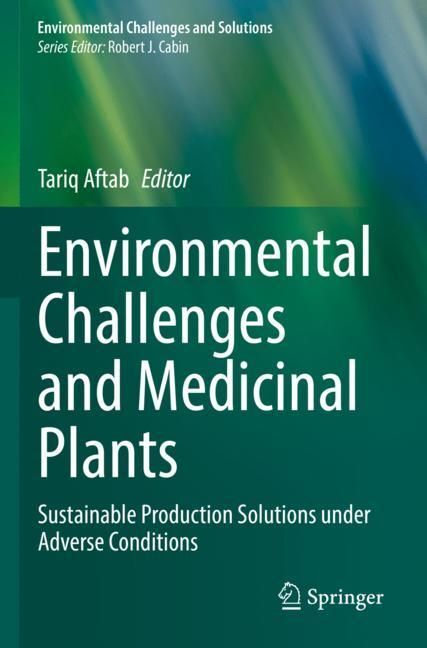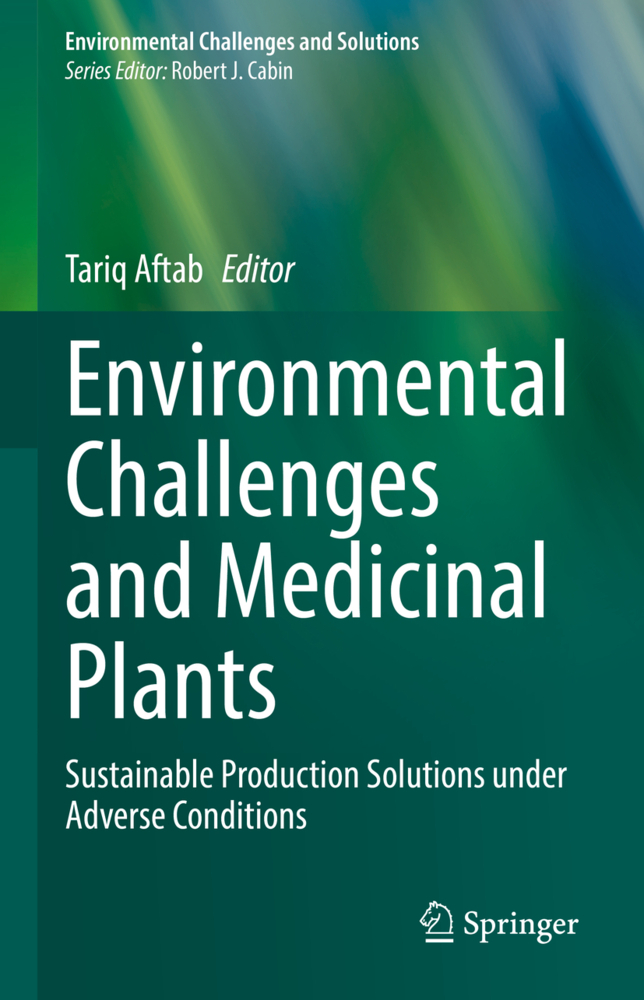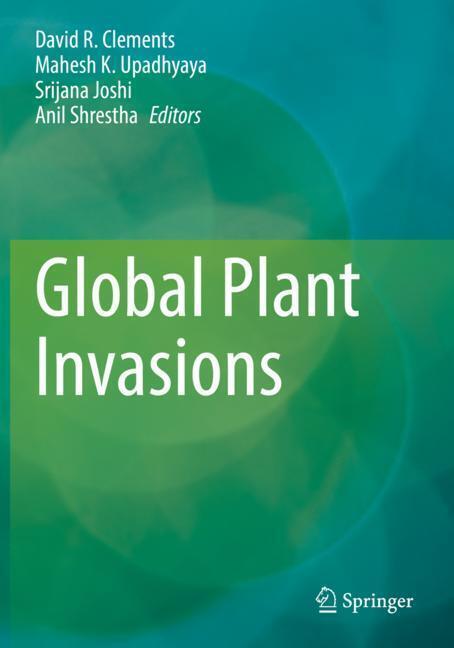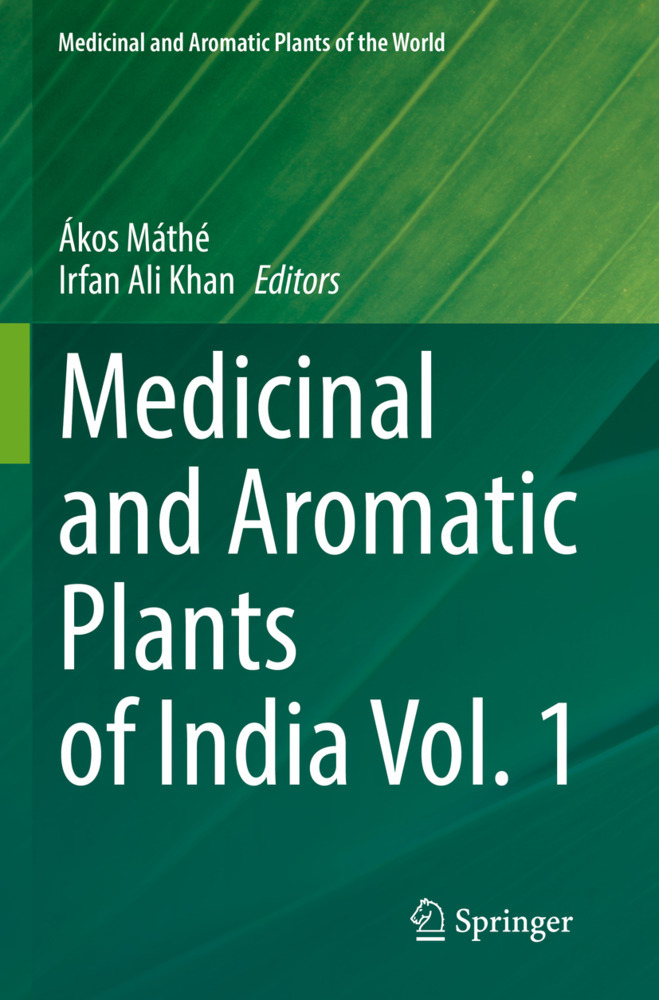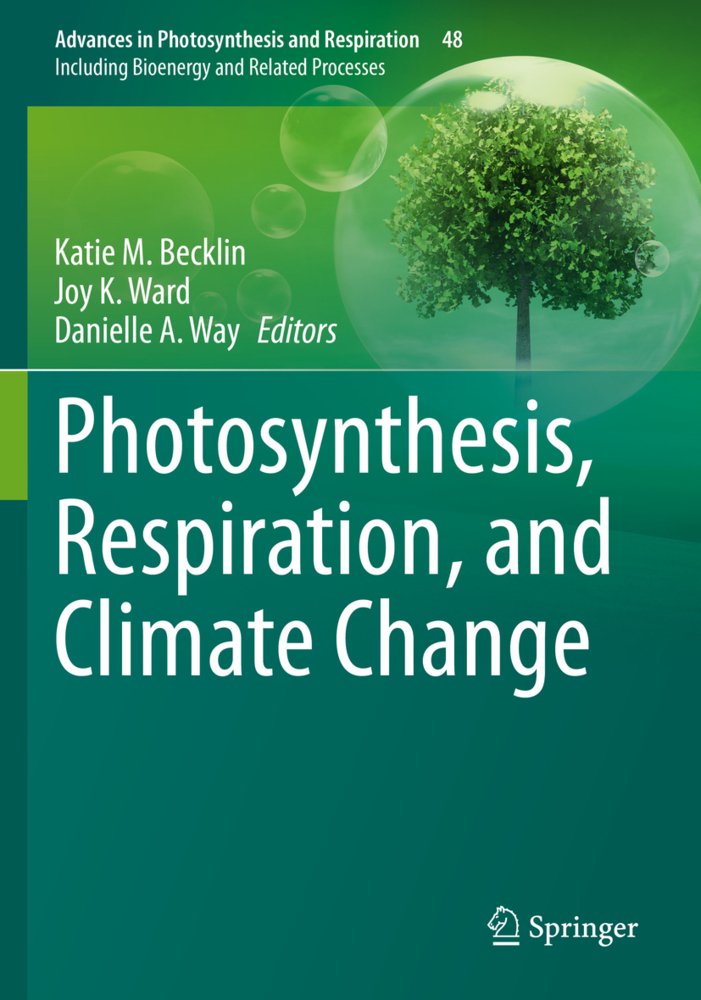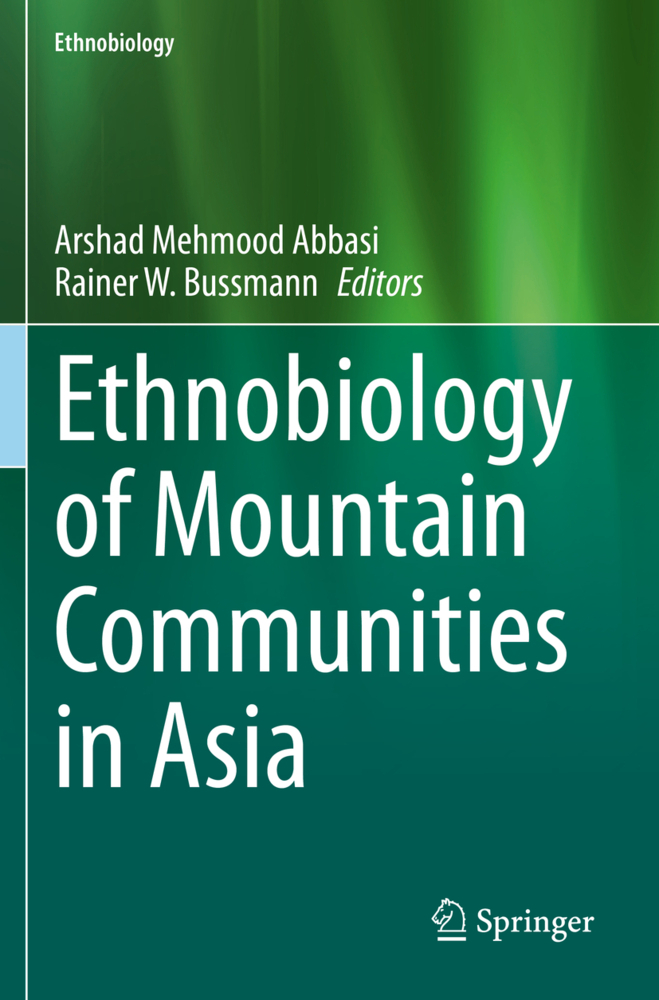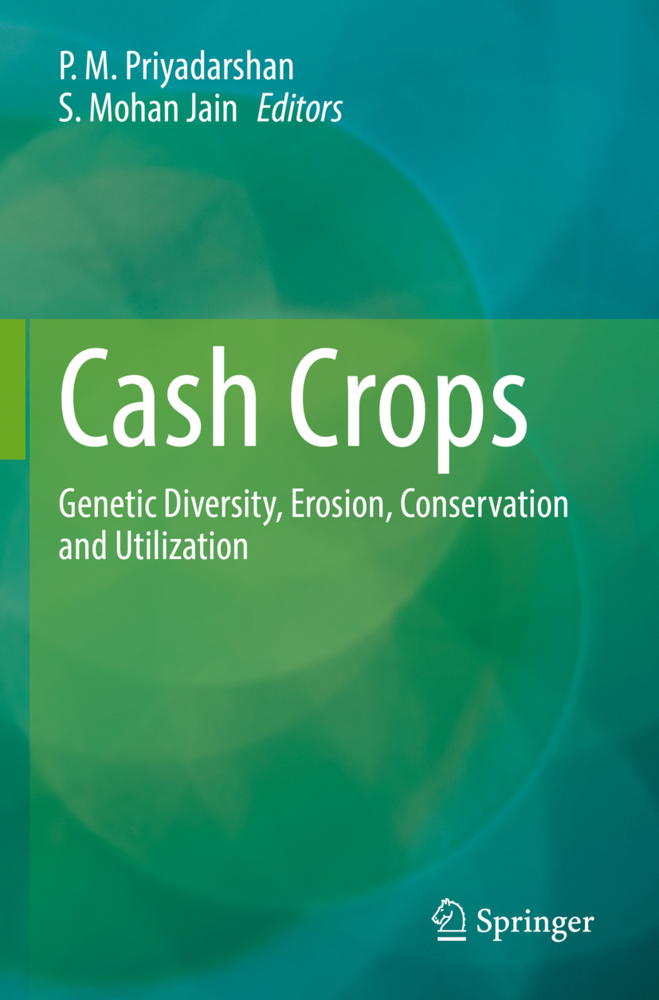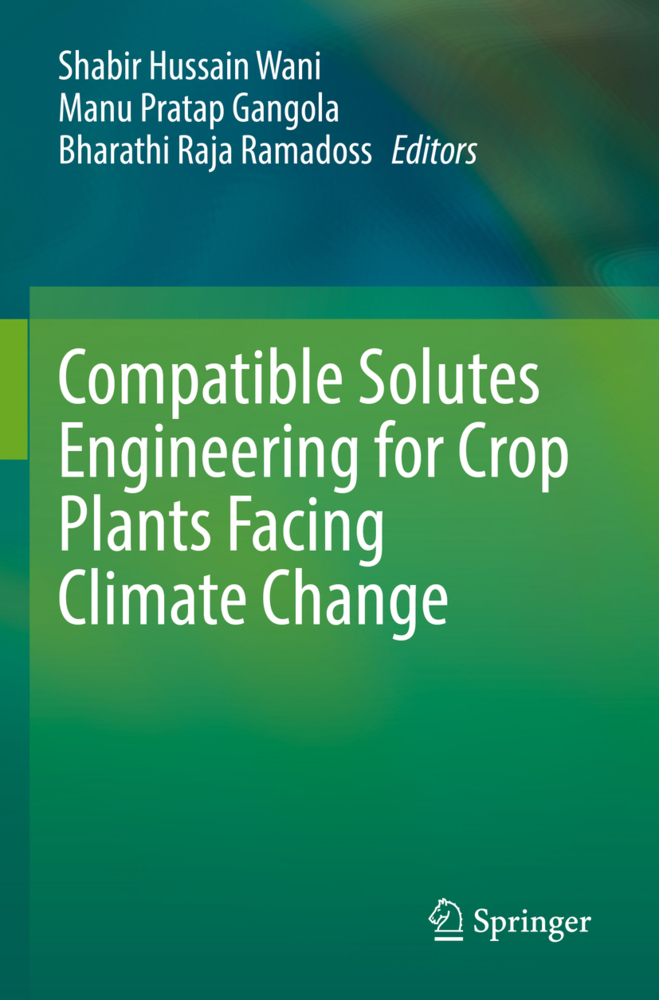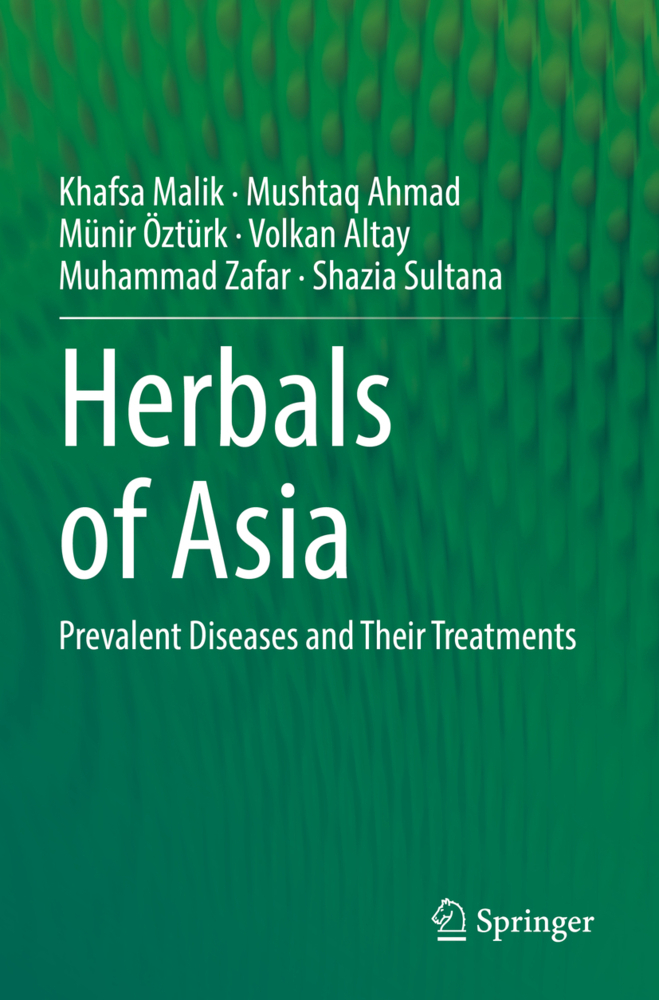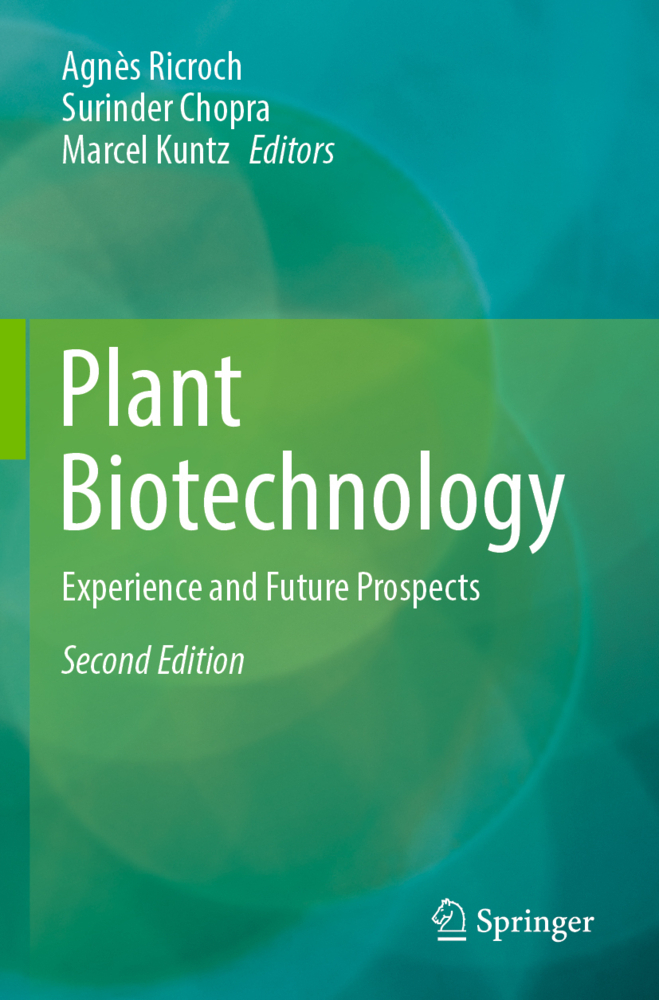Environmental Challenges and Medicinal Plants
Environmental Challenges and Medicinal Plants
Medicinal plants supply the ever-growing needs of humankind for natural chemicals, such as pharmaceuticals, nutraceuticals, agrochemicals, and chemical additives. These plants contain bioactive secondary metabolites, which possess antimalarial, anthelminthic, anti-inflammatory, analgesic, antimicrobial, antiarthritic, antioxidant, antidiabetic, antihypertensive, anticancer, antifungal, antispasmodic, cardioprotective, antithyroid, and antihistaminic properties. Secondary metabolites play a major role in the adaptation of plants to the changing environment and stress condition as they are affected by both biotic and abiotic stress. Humans rely on medicinal plants for various needs since ancient time, and their population still seems enough for fulfilling our demands. However, in the foreseeable future, we will be forced to think about the accessibility of resources for future generations. For these reasons, we must look for alternative sustainable options of resources which can protect these immensely important medicinal plants from various stresses induced by challenging environment. Evolving eco-friendly methodologies and mechanisms to improve these plants' responses to unfavorable environmental circumstances is important in creating significant tools for better understanding of plant adaptations to various abiotic stresses and sustaining the supply of pharmaceuticals as global climate change intensifies.
One of the great challenges in the near future will be the sustainable production of medicinal plants under increasing adverse effects of climate change. A combination of adverse demographic factors and climatological perturbations is expected to impact food and pharmaceutical production globally. Despite the induction of several tolerance mechanisms, medicinal plants often fail to survive under environmental extremes. To ensure their sustainable production under adverse conditions, multidisciplinary approaches are needed, and useful leads are likely toemerge. However, improving plants' performance under restrictive growth conditions requires a deep understanding of the molecular processes that underlie their extraordinary physiological plasticity.
This edited volume emphasizes the recent updates about the current research on medicinal plants covering different aspects related to challenges and opportunities in the concerned field. This book is an attempt to bring together global researchers who have been engaged in the area of stress signaling, crosstalk, and mechanisms of medicinal plants. The book will provide a direction towards implementation of programs and practices that will enable sustainable production of medicinal plants resilient to challenging environmental conditions. Moreover, this book will instigate and commence readers to state-of-the-art developments and trends in this field.
Current Status of Medicinal Plants in Perspective of Environmental Challenges and Global Climate Changes
Environmental Challenges for Himalayan Medicinal Plants
Wild-Growing Species in the Service of Medicine: Environmental Challenges and Sustainable Production
Favourable Impacts of Drought Stress on the Quality of Medicinal Plants: Improvement of Composition and Content of Their Natural Products
Adaptation Strategies of Medicinal Plants in Response to Environmental Stresses
Physiological and Biochemical Responses of Medicinal Plants to Salt Stress
Horizontal Natural Product Transfer: A Phenomenon Which Is Responsible for the Widespread Alkaloidal Contaminations of Herbal Products
Effect of Abiotic Stresses and Adaptation Strategies of Medicinal Plants
Impact of Various Environmental Factors on Biosynthesis of Alkaloids in Medicinal Plants
Regulation of Expression of Transcription Factors for Enhanced Secondary Metabolites Production Under Challenging Conditions.-Sustainable Use Practices of Medicinal Plants and Environmental Challenges: A Case Study in Pakistan
Profiling of Trace Elements and Regulatory Landscape of Dietary Herbal Supplements
Sustainable Economic Systems Against Biotic and Abiotic Stress in Medicinal Plants: Aeroponics, Hydroponics and Organoponics
Influence of Salinity on the Growth, Development and Primary Metabolism of Medicinal Plants
Role of Nano-Biotechnology in Medicinal Plant Production
An Insight into Plant Nanobionics and Its Application to Overcome the Impact of Environmental Stress on Medicinal and Aromatic Plants
Phytoremediation Capacity of Medicinal Plants in Soils Contaminated with Heavy Metals
Stress Tolerant Species of Medicinal Plants and Phytoremediation Potential
Breeding Advancements in Fenugreek for Environmental Stresses
Conservation Strategies for Medicinal Plants in the Face of Environmental Challenges
Integration of Medicinal Plants into Comprehensive Supply Chains: The Threats and Opportunities of Environmental Devastation.
Aftab, Tariq
| ISBN | 978-3-030-92052-4 |
|---|---|
| Medientyp | Buch |
| Copyrightjahr | 2023 |
| Verlag | Springer, Berlin |
| Umfang | XV, 512 Seiten |
| Sprache | Englisch |

